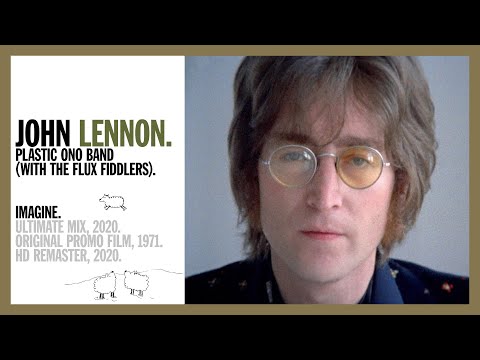Imagine There’s no Heaven Lyrics

In the realm of music, there exist certain compositions that transcend mere melody and lyrics, encapsulating profound sentiments that resonate across generations. Among these timeless pieces, “Imagine” by John Lennon stands as an anthem of hope, unity, and the power of imagination. Released in 1971 as the title track of Lennon’s solo album, “Imagine” has since become an emblem of peace and a catalyst for contemplation on societal ideals. At the core of its allure lies its iconic opening line: “Imagine there’s no heaven.” These words, provocative and contemplative, serve as a gateway to a world of introspection and philosophical inquiry.
The lyrics of “Imagine” challenge conventional beliefs and invite listeners to envision a world stripped of religious and ideological divisions. Lennon’s utopian vision transcends the barriers of dogma, advocating for a universal brotherhood grounded in empathy and compassion. By asking us to imagine a reality devoid of heaven, hell, countries, or possessions, Lennon encourages introspection into the constructs that shape our identities and relationships.
Central to the song’s theme is the concept of unity. Lennon paints a portrait of a world where humanity is united by shared humanity rather than divided by religious or nationalistic affiliations. “Imagine all the people living life in peace” resonates as a universal aspiration, echoing the yearning for harmony amidst the chaos of discord and conflict. In envisioning a world devoid of borders and boundaries, Lennon challenges us to transcend the limitations of our prejudices and biases, embracing the inherent dignity of every individual.
Moreover, “Imagine” serves as a poignant critique of materialism and the pursuit of wealth at the expense of human connection. Lennon’s call to “imagine no possessions” reflects a deep-seated disillusionment with the consumerist culture that prioritizes material wealth over spiritual fulfillment. In a society consumed by the pursuit of material gain, Lennon’s message serves as a stark reminder of the intangible values that truly enrich our lives – love, empathy, and solidarity.
The enduring relevance of “Imagine” lies in its ability to inspire introspection and provoke dialogue on pressing social issues. In an era marked by political strife, economic inequality, and environmental degradation, Lennon’s message of unity and compassion remains as potent as ever. The song serves as a rallying cry for activists and advocates striving to create a more just and equitable world, where the dignity and rights of all individuals are upheld and respected.
Beyond its lyrical content, “Imagine” is distinguished by its simple yet evocative melody. The gentle piano chords and Lennon’s soothing vocals create an atmosphere of serenity and contemplation, inviting listeners to immerse themselves in the song’s profound message. The sparse arrangement allows the lyrics to take center stage, amplifying their impact and resonance.
Since its release, “Imagine” has become an enduring anthem for peace and social justice movements worldwide. Its message has been embraced by artists, activists, and ordinary citizens alike, serving as a beacon of hope in times of darkness. Whether sung at protests, weddings, or moments of personal reflection, “Imagine” continues to inspire individuals to envision a world guided by the principles of love, compassion, and understanding.
However, “Imagine” has also faced criticism from some quarters. Critics argue that Lennon’s vision of a world without religion or national boundaries is naïve and impractical. They contend that human nature is inherently flawed, and utopian ideals are destined to remain unattainable fantasies. Moreover, some religious groups have taken issue with the song’s dismissal of heaven and the afterlife, viewing it as an affront to deeply held beliefs.
Despite these criticisms, “Imagine” endures as a testament to the power of music to provoke thought and inspire change. Its ability to transcend cultural and ideological divides speaks to the universality of its message. In an increasingly interconnected world, where division and distrust often reign, “Imagine” serves as a reminder of our shared humanity and the potential for a better tomorrow.
Conclusion
“Imagine” by John Lennon stands as a testament to the enduring power of music to uplift, inspire, and provoke change. Through its thought-provoking lyrics and evocative melody, the song challenges us to imagine a world guided by the principles of peace, unity, and compassion. While some may dismiss Lennon’s vision as idealistic or unattainable, the song’s enduring popularity and resonance attest to its timeless relevance. As we continue to grapple with pressing social, political, and environmental challenges, “Imagine” serves as a reminder of the transformative potential of collective imagination and action.





